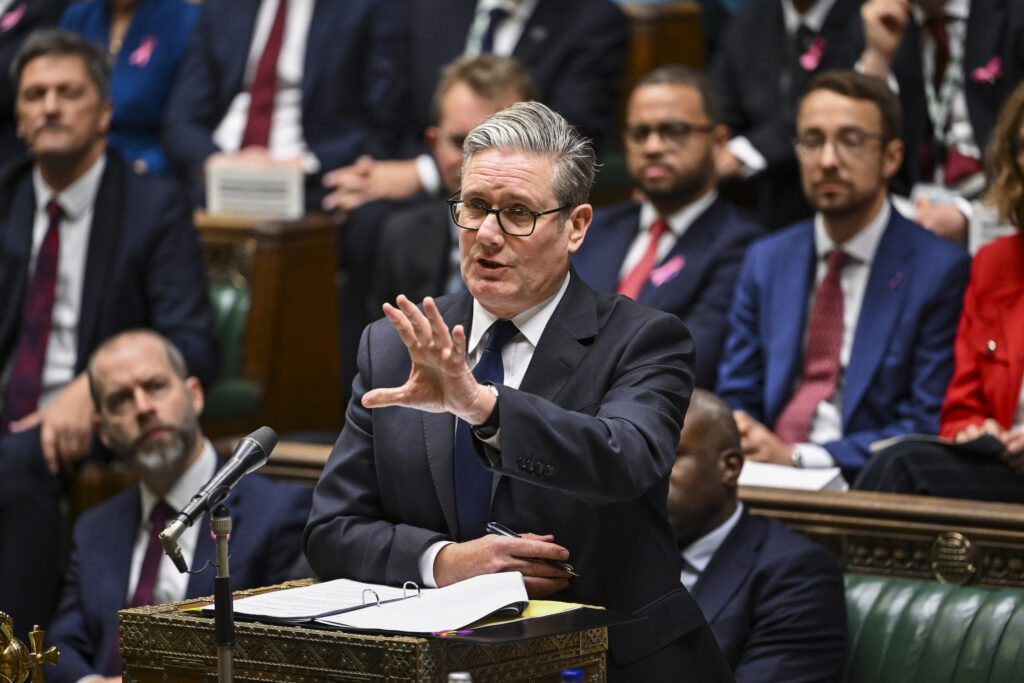In the first installment of PMQs since party conference season ended, this week’s clash between Labour leader Sir Keir Starmer and Tory leader Kemi Badenoch saw the controversial recent China spy case take centre stage.
The session today [15th October] began with tributes being paid to Sir David Amess, a Conservative MP who was tragically murdered four years ago while hosting a constituency surgery in Essex.
Starmer then opened PMQs in an unexpected fashion, making a statement to the House regarding China spy case in which he affirmed that the government was “disappointed” at the collapse of the case, and that they will publish the relevant witness statements “in full.”
He stated that these witness statements should be expected as soon as they have passed the necessary security checks.
Starmer also said that no government ministers or special advisers have at any time had any involvement in the case.
The case, which saw British citizens Christopher Cash and Christopher Berry accused of spying for the Chinese government, collapsed last month after the Crown Prosecution Service concluded it could not obtain sufficient evidence from the government to prove that China poses a national security threat to the UK.
On the controversial case, Badenoch and Starmer remained at loggerheads throughout PMQs, each blaming the other party’s government for the mess.
Badenoch used all of her six allocated questions in today’s PMQs to take aim at the Labour government’s handling of the case.
According to Badenoch, the collapse of the case was the fault of the current Labour government, as they had failed to see the case through while in office.
Badenoch said: “This all stinks of a cover-up.”
In contrast, Starmer took the complete opposite tack, laying blame on the previous Tory government for failing to provide sufficient evidence to back up the case during their time in office.
It was under the previous Conservative administration that the case began, with the initial arrest of Cash and Berry in 2023.
The pair were then charged with espionage offences under the Official Secrets Act in April 2024, just over two months before Starmer was given the keys to Number 10.
Laying responsibility at the feet of the Tories, Starmer threw back quotes made by a number of Tory ministers during the last government at Badenoch.
This included a quote by Badenoch, made when she was Business Secretary in September 2023. Badenoch had said: “We should certaintly not be describing China as a foe.”
Hearing her own words used against her, Badenoch looked visibly uncomfortable.
Starmer also accused Badenoch of: “Playing politics with national security.”
Liberal Democrat deputy leader Daisy Cooper, standing in for Ed Davey, also laid into the Prime Minister for the collapse of the China spy case – this time focusing on its implications for the safety of Hong Kongers living in the UK.
She called on Starmer to continue support of Hong Kongers, and to not trade away their security in exchange for a better relationship with Beijing. In response, Starmer affirmed his committment to supporting Hong Kongers and their security.
The questions today ended, as they had started, in a rather unusual manner – with former Foreign Secretary James Cleverly calling for a Point of Order to correct an earlier quote attributed to him by the Prime Minister.
Starmer had claimed that Cleverly said in a speech at Mansion House in 2023 that describing China as a threat was: “Impossible, impractical and most importantly unwise.”
Cleverly instead said that this quote was referring to describing China as “one word”, which he said would be impossible, impractical and unwise, rather than whether or not China could be described as a threat.
The biggest takeaway from this week’s PMQs is that the China spy case remains an area of contention – and most importantly, as of yet unresolved.
Featured image via House of Commons / Flickr.




